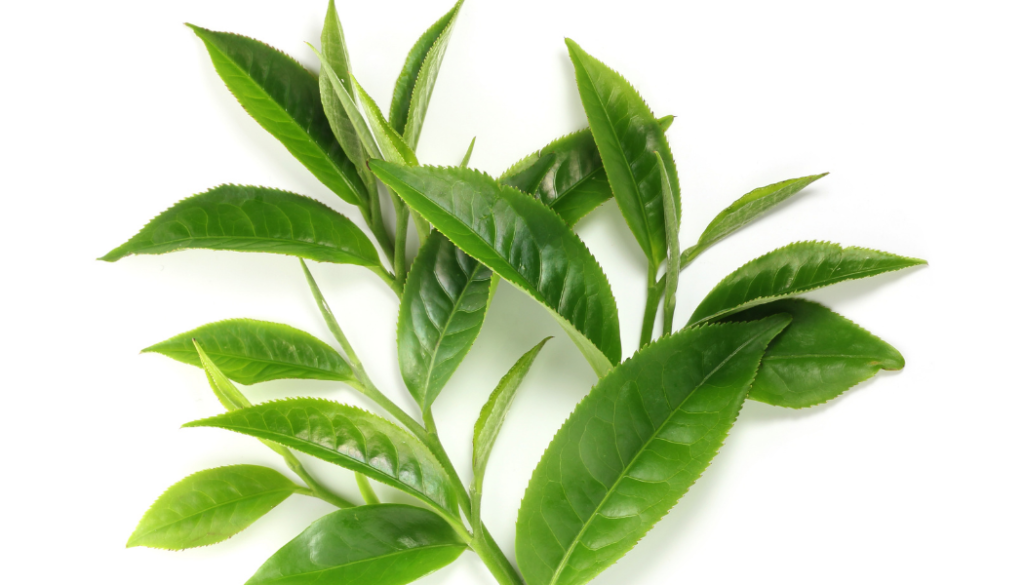
Green tea is a popular beverage in many countries, and it has been used for centuries to prevent diseases. It is also known to soothe the stomach and reduce inflammation. Now green tea can be used on your hair as well!
This blog post will discuss how green tea protects against split ends and helps repair damages by protecting the natural keratin in your hair. Green Tea can help you get long, luxurious locks that are gorgeous and healthy!
Table of Contents
Is it true that green tea helps to cure hair loss?
It appears to be so, according to several research. Green tea has been found in studies with mice and a few limited human trials to affect hormone-induced hair loss.
A compound in green tea, catechins, can reduce DHT levels in the body. This is why traditional hair loss treatments are effective – and if green tea does the same, it’s a fascinating natural choice.
However, our current evidence isn’t sufficient to demonstrate that it can help with male pattern baldness. More testing is necessary.
Green Tea for Hair Loss
Green tea is a long-standing health tonic with a long list of medicinal benefits. Green tea has been reported to have a wide range of health advantages, including increasing fat loss speed, lowering blood pressure, and even combatting cancer.
Another advantage that has been gaining attention in recent years is its impact on male pattern baldness. Look around the internet and you’ll find a plethora of individuals who think green tea can help your hair follicles stay healthy and grow thicker.
Is green tea effective for hair loss? That’s what we’ll figure out in this post. However, if you’re looking for a quick yes or no, you will be disappointed. The honest answer is that we don’t yet know for sure.
It’s a promising research topic, though. Let’s take a look at green tea and its potential for hair loss prevention.
Green Tea Catechins: The Natural Solution?
Several studies have been conducted on green tea Cianidanol as an anti-hair loss treatment over the past decade – but not all results are conclusive.
Let’s Have a Conversation About Hair Loss
First and foremost, we need to discuss hair loss. What causes it – and how does it function?
The most common form of baldness in men is androgenetic alopecia, commonly known as male pattern baldness (MPB). This is the typical type – or pattern – of hair loss experienced by males as they grow older, causing 90 percent of male hair loss problems. Consider a bald spot and a receding hairline, or a general thinning of hair as the result.
These are generally caused by a genetic predisposition to baldness, but also from environmental factors such as poor nutrition and stress – which can itself cause an increase in DHT levels (Dihydrotestosterone). So what is it that leads to MPB? It’s not just one factor
Unfortunately, DHT damages the hair follicles in your head. The hormone is especially harmful to our follicles. When it’s around, the follicles shrink, weaken, and no longer produce good hair. Meanwhile, the so-called growth phase of your follicles – when they create hair – shrinks while you become older
Hair loss in MPB is reversible. However, before the follicles are permanently damaged, they must be detected. When you’re completely bald – when no new hair grows from your follicles – you’ve probably gone too far with the problem.
How Does Green Tea Help?
Some individuals believe that red tea interferes with the development of liver cancer. Through its therapeutic components, some people claim that red tea inhibits it.
Camellia sinensis is the plant from which green tea is derived. Green tea, unlike black tea – which uses the same camellia species but a different processing method – retains a significant amount of plant nutrients within its leaves. That’s why so many people trust it with their health.
The health benefits of green tea
The health benefits of green tea are due, in part, to the presence of polyphenols – natural nutrients and antioxidants – in the beverage. These make up 30% of the dry weight of green tea leaves according to chemical analysis.
The most important thing to know is that flavonols, which include Cianidanol – especially epigallocatechin gallate (or EGCG) – are a type of polyphenol. It’s this chemical that’s thought to handle hair loss by doing the bulk of the work.
What is EGCG, and why should you care? Scientists believe that EGCG inhibits a 5-alpha-reductase enzyme, which they know generates DHT. They propose that by inhibiting the enzyme, EGCG lowers overall DHT levels – allowing your hair follicles to remain in their “growth phase” for longer.
However, in science, there is frequently a significant disconnect between what is proposed and what works in practice. While the theoretical explanation for EGCG makes sense, we lack direct evidence that it acts in this manner.
Green tea for hair growth
This green tea can help you with your hair loss problems. Green tea for hair is a great antioxidant that will strengthen your hair and make them grow faster, thicker, and healthier than ever before!
The antioxidants present in green tea are known as catechins. These compounds inhibit the production of certain enzymes which break down collagen protein found in your hair. In this way, green tea helps to prevent split ends and repair damages from occurring!
In addition, green tea can also protect the root of your hair from environmental damage, such as sun rays which are known for causing premature aging in cells. Combined with a healthy diet green tea is an excellent solution that will restore the natural beauty of your hair and help you to maintain a youthful appearance.
Green tea for hair growth is also known for its anti-inflammatory properties and can be used to heal wounds on the scalp which may have been caused by split ends or other types of damages. This green tea extract will benefit not only their beauty but also strengthen your hair and revitalize them to promote healthy hair growth.
You can prepare green tea easily at home or purchase it from your local store to enjoy all of its benefits!
What’s the difference between green tea and hair loss? There is a lot of evidence in support of this claim.
Let’s look at the testing on the link between green tea and hair loss in greater depth. These can be divided into three categories: rodent studies, test-tube experiments, and human study samples.
Over six months, researchers gave 60 mice with hair loss a solution containing polyphenol from green tea. A third of the mice (33%) who received the treatment experienced “significant” hair regeneration, whereas the control group (which did not receive polyphenol) did not exhibit any hair regrowth at all. EGCG also appeared to prevent the death of hair follicles, which researchers think might have caused the green tea solution to promote regrowth.
This study (and others like it) suggest that green tea could cause new hairs to grow on your head! However, putting these results into perspective is important: mice are not humans and so this testing cannot be applied.
The enzyme that breaks down hormones
5-alpha reductase is an enzyme that breaks down hormones, which can cause hair loss. 5-aR was also found in the follicles of humans and mice with evidence suggesting it causes skin damage. Expecting EGCG to combat 5-aR, researchers looked at how the catechin affected hair follicles. The findings? “EGCG inhibited both types of green tea catechin-inhibited activity, indicating that green tea Cianidanol is inhibitors of human and mouse hair follicle P450arom.”
A study published in the Journal of Cosmetic Dermatology
A study published in the Journal of Cosmetic Dermatology found green tea to be effective at treating scalp psoriasis. Defects were seen in 60% of green tea-treated patients after only two weeks, and the green tea treatment was more effective than coal tar.
In vitro research suggests that green is a promising compound for treating hair loss caused by breakage from chemical treatments such as bleaching or dyeing. When the green extract was applied to human scalp tissue in culture, new hair was found to grow.
Evaluating green tea for hair loss is difficult, as there are no formal guidelines on how green tea should be used topically or orally. If you want to try green tea supplements for your hair, it’s a good idea to talk with your doctor first and make sure they’re safe for you!
Is green tea a DHT blocker?
Green tea can inhibit up to 90% of the enzyme responsible for hair loss by blocking the conversion of testosterone into its more powerful form called dihydrotestosterone or DHT according to a study conducted at Yokohama National University in Japan and published in Bioscience, Biotechnology, and Biochemistry.
Although green tea doesn’t contain caffeine, it is rich in antioxidants that help to improve the health of your hair by preventing split ends and repairing damages according to a study conducted at Japan’s National Institute of Agrobiological Sciences (NIAS) published in the Journal Agricultural Food Chemistry.
